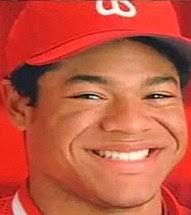 This is an interview inspired article about Robbie Tolan, a promising young professional baseball player with the Washington Nationals, whose career was tragically cut short, and almost lost his life. All of this was because a police officer made a mistake.
This is an interview inspired article about Robbie Tolan, a promising young professional baseball player with the Washington Nationals, whose career was tragically cut short, and almost lost his life. All of this was because a police officer made a mistake.
The interviewer somewhat stated, “Robbie we are excited to have this opportunity to really get down to the nuts and bolts of the situation, and unload some of the details of your story for those who doesn’t know you, and haven’t heard about your situation. So let’s begin with your career, your sports career and what that was like for you”.
What A Sports Career Was Like For Me
 As Robbie began speaking, he said, “I umm, grew up in baseball, first of all. My dad was a umm, a fourteen year major league veteran, four world series rings as a player, two as a coach”.
As Robbie began speaking, he said, “I umm, grew up in baseball, first of all. My dad was a umm, a fourteen year major league veteran, four world series rings as a player, two as a coach”.
“I grew up in baseball, and loving the game, and so, that to me was, what I was suppose to do. You know I thought, that that would be my career, that would be my destiny, and so I grew up wanting to be just like my dad. So I played baseball all through the league, and college, and I had an opportunity to play professional with the Washington Nationals.”
The interviewer then asked something like; “Can you give us some sort of sense of your family life, and what it was like growing up?”
What My Family Life Was Like Growing Up
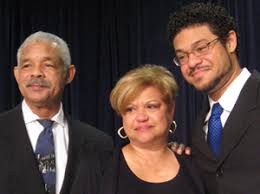 Robbie then said, “I grew up with a huge family, my mother is one of eleven; My dad is one of nine, so my family means everything to me; We’re very very close, very tight knit, and so I mean my family is my heart, they have my entire heart, and umm, you know life was good, it seemed like everything… it seemed that I had everything I needed, and umm, my only focus was… was baseball to be honest with you.”
Robbie then said, “I grew up with a huge family, my mother is one of eleven; My dad is one of nine, so my family means everything to me; We’re very very close, very tight knit, and so I mean my family is my heart, they have my entire heart, and umm, you know life was good, it seemed like everything… it seemed that I had everything I needed, and umm, my only focus was… was baseball to be honest with you.”
The interviewer then said something like, “Let’s talk a little bit about that. You’re focused with sports, you come from a strong family, you have very strong family values and heritage and strength and… and then all of the sudden at a moment in your career where you’re really finding your way in life; Let’s go back to ten years ago when you were twenty one years old, and tell us about the day prior to the incident that you had this altercation with the police and what that was like.”
The Day Prior To Police Altercation
 Then Robbie replied with, “Well I uhh….well you might not know, but, unless you get drafted in the higher rounds, you know you get a sizable signing bonus, most of the minor leaguers have to work in the off season.”
Then Robbie replied with, “Well I uhh….well you might not know, but, unless you get drafted in the higher rounds, you know you get a sizable signing bonus, most of the minor leaguers have to work in the off season.”
“So I was working in a restaurant, and umm, in training, getting ready for the upcoming season, and so I was initially suppose to be off that night, and then one of my co-workers asked if I could pick up her shift, I went in and so I guess my co-worker never put my name down to pick up her shift so then they said, you know,” “(you are off)”.
“So I said okay. I went back home, picked up my little cousin, and umm, we went out to eat. We met up with some friends and played pool for a little bit. Then, that was it, then we went home like we always do. It is not uncommon for us to come home after midnight. You know we go hang out with friends and uhh, that was that.”
The interviewer then asked, “So what happened on the way home that changed your life forever?”
Robbie Tolan’s Life Changing Night Before The Altercation
 Robbie replied, “On the way home…nothing on the way, umm, we did what we usually do, we worked up an appetite playing pool and so we stopped by a fast food spot and got some burgers, and pulled up at the house, parked on the street.”
Robbie replied, “On the way home…nothing on the way, umm, we did what we usually do, we worked up an appetite playing pool and so we stopped by a fast food spot and got some burgers, and pulled up at the house, parked on the street.”
At this time the interviewer asked, “You did not realize that when you pulled up at your house that you were being followed?”
Robbie replied, “Not initially, no. I pulled up in front of my house, I parked on the street which I had done for…at that time I had, had that car, the same car for four years. I had parked on the street for four years with that same car in front of the house that I have lived in for the last fifteen years, at that time.”
The interviewer then stated something like, “For the benefit of those who don’t know, the police officer had began to tail you from the convenience store, and had already began to run information on your tags.”
Robbie replied by saying, “Correct.”
The interviewer then continued on by saying, “according to his report where he had wrongly, put in the wrong number for your license number on the tag, it had come up stolen.”
Robbie replied by saying, “Right.”
The interviewer then continued on by saying, “so when you pulled up in front of the house, you have a police officer who has already determined by the mistake he has made, that is later determined by court records, that in fact your car is stolen, when in reality it was the wrong number”
Robbie replied as the interviewer continues talking by saying, “Right.”
The interviewer then continued on by saying, “that proceeded this altercation.”
The interviewer then asked, “So you were getting out of the car, at this point, do you know that the police are behind you?”
Robbie replied by saying, “I got out of my car, and I saw that there were headlights shining on the inside of my door, so I just kinda stuck my head back, and I saw that it was a police car, but obviously I have not done anything wrong so there was nothing for me to be alarmed about, and you know for… my parents and I live in BelleAire, which is a city within the city of Houston, population about three thousand people. So, you know for them to have their own police department, it is not uncommon for them to patrol the streets at all hours of the night. So it was something that I was accustomed to.”
A Bedroom Community Background
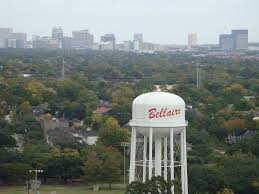 The interviewer then said, “Now BelleAire is, an upper class, suburban, bedroom community of the upper echelon of Houston?”
The interviewer then said, “Now BelleAire is, an upper class, suburban, bedroom community of the upper echelon of Houston?”
Robbie replied by saying, “Yeah, correct, yeah, it’s a very affluent community with a very good baseball program; Which I played the four years I went to school there. It’s very much a staple in the community. You know my parents and I moved into BelleAire when I was very young, maybe I was about seven, or eight years old.”
The interviewer then asked, “Was it common to have a lot of African Americans in the community that you lived in?”
Robbie replied by saying, “No, not at all, I am not sure what the number is now, but at the time the population of Blacks in the city of BelleAire were less than, uhh 2% so.”
The interviewer then said that they were setting the atmosphere for people who did not know this information, to understand.
Robbie Tolan’s Life Changing Night During The Altercation
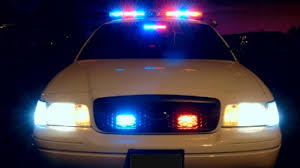 The interviewer then recapped the event information by saying, ” You pull up in BelleAire, where you’ve lived, where you’ve grown up, and the police officer has already run information to determine that he thinks that he is pulling up to arrest, or recover a stolen automobile, but you’re actually just coming home with your friends late at night?”
The interviewer then recapped the event information by saying, ” You pull up in BelleAire, where you’ve lived, where you’ve grown up, and the police officer has already run information to determine that he thinks that he is pulling up to arrest, or recover a stolen automobile, but you’re actually just coming home with your friends late at night?”
Robbie replied by saying, “That’s Right, Yep.”
The interviewer then asked, “So you open the car door, then he says what?”
Robbie replied by saying, “Well he didn’t say anything initially, I opened the door, I saw that there were lights, I turned my head and saw that it was a police car, and I stuck my head back in, got my food and stuff out of the car like normal. Again I hadn’t done anything, there was nothing for me to be scared about, or freak out, take off or anything like that, so I just did what I normally do, just got my stuff out of the car and walked up the driveway.”
 Robbie continued his reply by saying, “At that point he drove by me, he didn’t say anything, he drove by me, and umm, he made a U turn at the end of the street. Which we lived on a cul de sac. So he made a U turn at the end of the street and parked, turned the headlights off, so he just had like the dimmers on I guess you call them. Umm, and, my cousin Anthony and I just walked up the driveway, and you know, business as usual. It wasn’t until I got to the front porch, I was getting my key, I had my hand in my pocket getting my keys out, and then, at that point we heard, Get On The Ground! And Uh, I turned to the direction the voice came from, there was a gun and flashlight drawn at us, and I looked just past the officer and saw that he had now driven back up and parked nose to nose with my vehicle on the street.”
Robbie continued his reply by saying, “At that point he drove by me, he didn’t say anything, he drove by me, and umm, he made a U turn at the end of the street. Which we lived on a cul de sac. So he made a U turn at the end of the street and parked, turned the headlights off, so he just had like the dimmers on I guess you call them. Umm, and, my cousin Anthony and I just walked up the driveway, and you know, business as usual. It wasn’t until I got to the front porch, I was getting my key, I had my hand in my pocket getting my keys out, and then, at that point we heard, Get On The Ground! And Uh, I turned to the direction the voice came from, there was a gun and flashlight drawn at us, and I looked just past the officer and saw that he had now driven back up and parked nose to nose with my vehicle on the street.”
The interviewer then asked, “What was going through your mind, your heart, your emotions at that point?”
Robbie answers, “You know I, I was a little irritated, I was annoyed, because, for a number of reasons, one I hadn’t done anything. That’s first and foremost. Number two, this is my house, this is my car, you know, you know I was umm, I wasn’t afraid, I was mor, you know, I thought he had come just to harass two black kids to be honest with you.”
The interviewer then stated, “So the initial conversation wasn’t, I want to see your driver’s license and registration, or any check to see who you were or what was going on, it was Get On The Ground!”
Robbie, talking over the interviewer, ” It was Get On The Ground! in so many words, You Are Driving A Stolen Car. You know he said, Get On The Ground! I said for what? He said that you know, We Got A Report Of A Stolen Car, that, That’s A Stolen Car, I said, no sir, that’s my car. He said Get On The Ground! I said, sir, that’s my car, I am not getting on the ground, because I haven’t done anything. I can show you my driver’s license and my insurance, this is my car, this is my house. He said, I Am Not Going To Tell You Again To Get On The Ground! And He increasingly became more agitated as the conversation went on.”
The interviewer then asked, “Now about this time how many other police officers began to gather around?”
Robbie answers, “Umm, it’s still just the one. We had learned, umm, a little bit later that he had been calling for backup. That he had called for backup initially when I had parked. They hadn’t gotten there yet, so it was just him, and the two of us.”
The interviewer then asked, “When you said, I am not getting on the ground because this is my car, did you end up on the ground? I mean what happens next?”
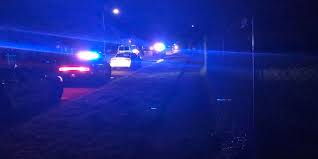 Robbie answers, “Umm, what happened next was that, my parents having just gotten home themselves, not too long before us, heard voices from inside the house. They heard yelling from me and Anthony, and they said later, they thought he and I were arguing, that Anthony and I was arguing. So they came to the door to see what we were arguing about.
Robbie answers, “Umm, what happened next was that, my parents having just gotten home themselves, not too long before us, heard voices from inside the house. They heard yelling from me and Anthony, and they said later, they thought he and I were arguing, that Anthony and I was arguing. So they came to the door to see what we were arguing about.
And I saw my dad, through the front door, there is this like window pane, well I can see inside the house a little bit. So I saw him unlocking the door to come out, and I said, to myself, okay I’ll get down on the ground now because, my dad is going to come out and fix everything. You know, he is going to show them that proof of insurance, or you know, this is our house, or you know, that’s my car, and so I said okay, when I saw him unlock the door, so I said okay, you know what, I’ll get down.
So umm, I got down on my knees as he came out, and he turned and saw that it was a police officer, and threw his hands up, and he asked, What’s Going On? The police officer said, we got a report of a stolen car. My dad said, No Sir, this is our car, this is our house, this is my son, this is my nephew, and, the officer said, No, this is a stolen car, I don’t want to hear that.
And I was yelling, I said No That’s My Car! my dad said, Shut Up And Get Down! Shut Up! Get Down! And at that point the officer took my dad at gunpoint over to another car that was parked on the driveway, our Suburban that was parked on the driveway, uhh, at gunpoint.”
The interviewer then asked, “So, he put a gun to your father, who came out of his house, and took him over to the car?”
“What kind of conversation occurred there?”
Robbie then answers, “Umm, I’m not sure, I just know, that uhh, my dad comes outside in his pajamas, the officer’s not listening to him, this is our house, this is our car, he doesn’t say, okay well, everybody calm down and let’s see some identification and kind of figure this thing out. He just goes zero to ten.”
The interviewer then asked, “At what point does your mother become involved in this?”
Robbie replys, “My mother followed my dad outside, so my mother walked out right behind him, and so, my dad is at gunpoint, being searched up against a car in the driveway; Anthony and I are down at this point on the ground, and my mom is saying, you know, this is absolutely ridiculous, I can’t believe this, we have been here for fifteen years, this is, nothing like this has ever happened to us, that’s my son’s car, this is our house, you know, you are making a huge mistake.”
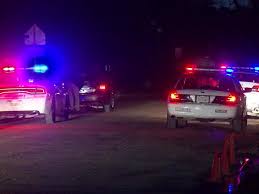 “At that point, then the backup arrived, about when my dad was being taken over to the car. My cousin, was, on his phone when we initially walked up to the house, so he was on his phone with another cousin of ours, who ended up hearing the entire thing happening, so, I believe to this day, that’s one of the things that saved my life.”
“At that point, then the backup arrived, about when my dad was being taken over to the car. My cousin, was, on his phone when we initially walked up to the house, so he was on his phone with another cousin of ours, who ended up hearing the entire thing happening, so, I believe to this day, that’s one of the things that saved my life.”
“Anthony, was on his phone, on the ground, trying to make sure our cousin heard everything.”
The interviewer then asked, ” Were you feeling, at this point, that you, and or your family were in the kind of danger that this might not have a good ending?”
Robbie replys, “You know what, not to the extreme that it actually went to. I didn’t think that anyone would be shot. I thought, if anything, you know, we’d be roughed up a little bit, maybe arrested, I knew it wasn’t good, but I didn’t think it would be to that degree.”
The interviewer then suggests, “Let’s talk about how you got shot.”
Robbie replied, “My mother was trying to, be a protector, you know, telling us to shut up, and she’ll handle this, and soo, she heard someone say, get up against the wall! She turned and saw that is was the backup officer, and she said, me? You want me to get up against the wall? This is my house, 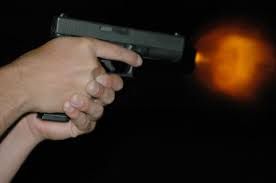 you know, I live here, this is my son, this is my nephew, this is our car, this is my house”.
you know, I live here, this is my son, this is my nephew, this is our car, this is my house”.
Robbie continues, “At that point, the officer grabbed her by the arm, so hard that she had bruises, and dragged her over to our garage door and threw her up against the door. And at that point I, lost it, I pushed myself up and said, get your hands off my mom! And, the officer didn’t say a word, he just took his gun and shot me in the chest.
What Just Happened?
The interviewer then asked, “Now, Were you armed?”
Robbie replied, “No, Not at all”.
The interviewer then said, “Describe to me that feeling in that moment, in that moment of excitement and rage. Did you have any sense, did you get a warning, did you feel like you were about to be shot”?
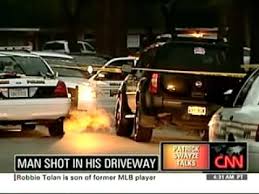 Robbie replied, “I didn’t, no, I didn’t get a warning at all. I thought I would, in fact, I heard the gun go off, and, I thought, he didn’t shoot me, I know he didn’t. Then I started to feel a little bit of pressure, and I said, well, well maybe, I mean, I don’t know how often this happens, I don’t think cops keep rubber bullets in their, you know, in their guns, but I said maybe he hit me with a rubber bullet or something, I know he didn’t just shoot me, not even a split second later, I blinked, and I was on the ground”.
Robbie replied, “I didn’t, no, I didn’t get a warning at all. I thought I would, in fact, I heard the gun go off, and, I thought, he didn’t shoot me, I know he didn’t. Then I started to feel a little bit of pressure, and I said, well, well maybe, I mean, I don’t know how often this happens, I don’t think cops keep rubber bullets in their, you know, in their guns, but I said maybe he hit me with a rubber bullet or something, I know he didn’t just shoot me, not even a split second later, I blinked, and I was on the ground”.
“I heard my mom, I could hear my mom saying, Oh my GOD! I can see smoke coming from his chest”!
The interviewer then asked, “This is December?
Robbie replied, “yeah”.
The interviewer then said, “It’s a cool evening, night”.
Robbie replied, “yeah”.
 The interviewer then asked, “You’re in your front yard, in front of your mother and your father, and your friend, and you’re laying on the ground bleeding, thinking what?”
The interviewer then asked, “You’re in your front yard, in front of your mother and your father, and your friend, and you’re laying on the ground bleeding, thinking what?”
Robbie replied, “Thinking this is it! I kept saying, Oh GOD! Oh GOD! Is this really how my life ends. Is this really it?”
“I kept saying that, over and over and over again. My mom started to pray, and uhh, I just knew this was it, I just knew my life was over.”
The interviewer then asked, “When you start talking about the realization; because, you started off saying, you know, you pulled up, you saw the police officer behind you, you weren’t afraid, you hadn’t done anything wrong, you got your things out the car, you go to the door to open up the door, you’re still cool with it, you hadn’t done anything wrong; Even when he confronted you, you were irritated, but you thought everything would turn out alright.
Now your thoughts have turned to this is it. My Life is over, physically, physically. What are you feeling, you have been shot in the chest, what does it feel like?”
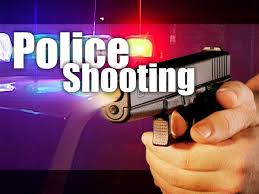 Robbie replied, “It’s not fun, let me tell you. It’s not something I would wish on anyone. It’s uhh, it’s a lot of umm, stinging, burning, you know, I’ve read somewhere that the force behind a uhhh, a 45 caliber bullet, which is what I was hit with is about 2,000 pounds, so, it’s like an elephant standing on your chest. I couldn’t breathe, and ummm, and if that wasn’t enough, I needed more proof that I was shot, I stuck my hand under my shirt, and, pulled it out and it was covered in blood, and there was blood dripping down my forearm, and I just, I mean I, I knew I was dead, I knew I was about to die.”
Robbie replied, “It’s not fun, let me tell you. It’s not something I would wish on anyone. It’s uhh, it’s a lot of umm, stinging, burning, you know, I’ve read somewhere that the force behind a uhhh, a 45 caliber bullet, which is what I was hit with is about 2,000 pounds, so, it’s like an elephant standing on your chest. I couldn’t breathe, and ummm, and if that wasn’t enough, I needed more proof that I was shot, I stuck my hand under my shirt, and, pulled it out and it was covered in blood, and there was blood dripping down my forearm, and I just, I mean I, I knew I was dead, I knew I was about to die.”
One Of The Few To Live
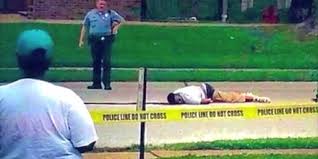 The interviewer then said, “You became one of the few black men that really became prominent in the press before Michael Brown, before Trayvon Martin, before, the list goes on and on of all of the young black men who have been in the press recently. The unique thing about your situation is that you survived. We don’t have a sense of what they’ve gone through, or what they may have felt, or if they had time to feel anything at all.”
The interviewer then said, “You became one of the few black men that really became prominent in the press before Michael Brown, before Trayvon Martin, before, the list goes on and on of all of the young black men who have been in the press recently. The unique thing about your situation is that you survived. We don’t have a sense of what they’ve gone through, or what they may have felt, or if they had time to feel anything at all.”
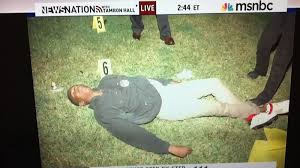 “But there you are lying on the ground, on the cold, in December, with your mother praying, your father is being accosted by the police, and you think you’re dying. You’ve stuck your hand in your chest, your hand comes out wet with blood, and this twenty one year old young man with a future, that you thought you would realize has now been abruptly arrested, and you think you’re dying.”
“But there you are lying on the ground, on the cold, in December, with your mother praying, your father is being accosted by the police, and you think you’re dying. You’ve stuck your hand in your chest, your hand comes out wet with blood, and this twenty one year old young man with a future, that you thought you would realize has now been abruptly arrested, and you think you’re dying.”
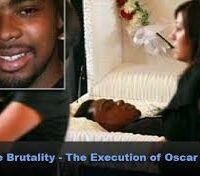 Robbie replied, “yeah”.
Robbie replied, “yeah”.
The interviewer then said, “With no weapon, you have no weapon.”
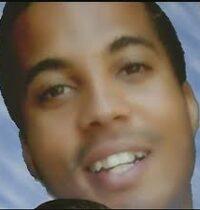 Robbie replied, “I have no weapon, no. One of the other things people don’t realize is, that same night, there were two other black men shot and killed by police. One in uhhh, in Oakland, Oscar Grant, who was the subject of the movie, Fruitvale Station; And Adolf Grimes, in New Orleans. All three were unarmed, shot within thirty six hours of each other; And, I was the one that lived.”
Robbie replied, “I have no weapon, no. One of the other things people don’t realize is, that same night, there were two other black men shot and killed by police. One in uhhh, in Oakland, Oscar Grant, who was the subject of the movie, Fruitvale Station; And Adolf Grimes, in New Orleans. All three were unarmed, shot within thirty six hours of each other; And, I was the one that lived.”
Post Traumatic Stress Disorder
The interviewer then said, “You know when I hear you talk about it, it’s almost visible, we can almost see the whole scenario, and I wondered in my mind, how many nights over the last ten years have you relived that moment?”
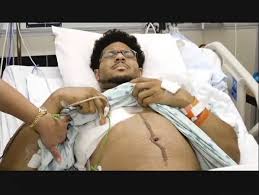 Robbie replied, “Oh my GOD! Every night! I mean there isn’t a day that goes by that I don’t think about it. I uhh, I still have the bullet, in me, they were unable to remove it. So that’s a constant reminder every day, I am in aches and pains every day because of it. Not only that, when I go to take a shower, I take my shirt off and I got these you know, these scars.”
Robbie replied, “Oh my GOD! Every night! I mean there isn’t a day that goes by that I don’t think about it. I uhh, I still have the bullet, in me, they were unable to remove it. So that’s a constant reminder every day, I am in aches and pains every day because of it. Not only that, when I go to take a shower, I take my shirt off and I got these you know, these scars.”
The interviewer then said, “When you talk about the physical scars, let’s talk a little bit about the scars that people will not be able to see. How has this scared you as man, as a person?”
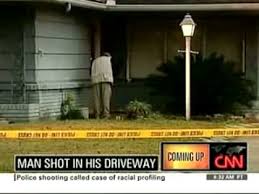 Robbie replied, “You know, it’s umm, it’s been really difficult, because, especially in the last, maybe four years or so, this kind of thing seems to happen more often than not; And so, it’s something I have to relive every day knowing that this, this was me, these kids were somebody’s son, and cousin, or nephew, or even dad. Ahhmm, and then dealing with the justice system, you know, having to go into depositions, and going to court, and trials and look at the man in the face who shot me. You know, having to sit across from him at a desk in a deposition with the gun that he shot me with on his hip.
Robbie replied, “You know, it’s umm, it’s been really difficult, because, especially in the last, maybe four years or so, this kind of thing seems to happen more often than not; And so, it’s something I have to relive every day knowing that this, this was me, these kids were somebody’s son, and cousin, or nephew, or even dad. Ahhmm, and then dealing with the justice system, you know, having to go into depositions, and going to court, and trials and look at the man in the face who shot me. You know, having to sit across from him at a desk in a deposition with the gun that he shot me with on his hip.
The interviewer then said, “Let’s get into the court part of it, but there’s one other thing I wanted to ask you. There is obviously outrage all over the country from both sides of this issue.”
Robbie Tolan’s Life Changing Night After The Altercation
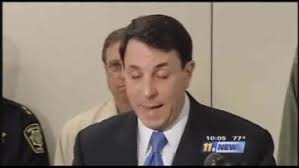 “There are people who are outraged that the police would be challenged or questioned at all, that they point out to us over and over everyday that the police are out there fighting and laying their lives down on the line, which they are for us as American citizens, we will not be able to survive the atrocities of 911, and countless other things that happen on a day to day basis without the assistance of valued police officers who work hard everyday to make things work.”
“There are people who are outraged that the police would be challenged or questioned at all, that they point out to us over and over everyday that the police are out there fighting and laying their lives down on the line, which they are for us as American citizens, we will not be able to survive the atrocities of 911, and countless other things that happen on a day to day basis without the assistance of valued police officers who work hard everyday to make things work.”
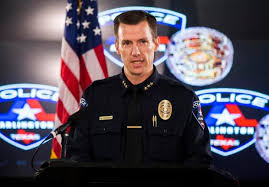 “Those who support those police officers, which should be all Americans, many of those Americans feel outraged that anybody would suggest that there are bad police officers, they say that the percentage is very, very low, without really any data to substantiate it, but, for you, in that moment, and for every time you hear of an incident, it is very plausible to you, it is very real to you that it is possible for a black man with no gun, young man in a fluent neighborhood, or any neighborhood, to be accosted, challenged, and then shot without questioning, or stun guns or, any of the other options that are available.”
“Those who support those police officers, which should be all Americans, many of those Americans feel outraged that anybody would suggest that there are bad police officers, they say that the percentage is very, very low, without really any data to substantiate it, but, for you, in that moment, and for every time you hear of an incident, it is very plausible to you, it is very real to you that it is possible for a black man with no gun, young man in a fluent neighborhood, or any neighborhood, to be accosted, challenged, and then shot without questioning, or stun guns or, any of the other options that are available.”
 “When you see that, over and over again, do you feel anger?
“When you see that, over and over again, do you feel anger?
Do you feel frightened, when you see police officers behind you?
What is the range of emotions, as a survivor of this incident?”
Robbie replied, “I am angry at the blatant ignoring of what’s going on, I mean listen, I do not hate cops, okay. You know people ask me that all of the time. Do you hate police officers? No, absolutely not! I have cousins, you know, very, very close cousins, who are more like my brothers, that are police officers. I do not hate cops, I think what they do is remarkable, I think the ones that are out there doing their job and serving the people like they are suppose to, are wonderful.”
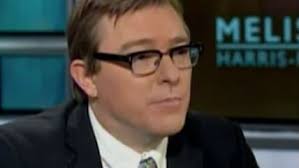 “However, I get angry at those who, you know, obviously there are bad apples in every bunch. There are, just like anything else. There are good doctors and bad doctors, good teachers and bad teachers, but, I think the ones that are bad and take advantage of their power and position should held accountable, and that’s why I get angry.”
“However, I get angry at those who, you know, obviously there are bad apples in every bunch. There are, just like anything else. There are good doctors and bad doctors, good teachers and bad teachers, but, I think the ones that are bad and take advantage of their power and position should held accountable, and that’s why I get angry.”
The interviewer then said, “Let’s talk about that accountability, because there are systems in place to evaluate these types of incidents. When you went to the criminal justice system, let’s talk about that journey, and what you went through in that process.”
The Criminal Justice System
 Robbie then says, “There is a process, but when we fail to, complete the process, or go through the process, this is where we fail as a nation, and the justice system fails us. The uhh, the officer was indicted for aggravated assault by a public servant. During the trial he was, he and his band of brothers got up on the stand and lied. They did what they do, you know, protect each other. The officer was acquitted. We filed a Federal civil lawsuit that was thrown out by Judge Melinda Harman. The judge threw out the case, and ordered us to pay the officer’s court cost for the case.”
Robbie then says, “There is a process, but when we fail to, complete the process, or go through the process, this is where we fail as a nation, and the justice system fails us. The uhh, the officer was indicted for aggravated assault by a public servant. During the trial he was, he and his band of brothers got up on the stand and lied. They did what they do, you know, protect each other. The officer was acquitted. We filed a Federal civil lawsuit that was thrown out by Judge Melinda Harman. The judge threw out the case, and ordered us to pay the officer’s court cost for the case.”
 “At that point, we were in the process of filing an appeal, and we said can we wait to pay this judgment for being shot, by the way, can we wait to pay this judgment until after our appeal? She said, no, you have to pay it now. So, after, the officer being acquitted, after the case being thrown out, after being shot, in order to pay the officers’ court costs, the officer who shot me.”
“At that point, we were in the process of filing an appeal, and we said can we wait to pay this judgment for being shot, by the way, can we wait to pay this judgment until after our appeal? She said, no, you have to pay it now. So, after, the officer being acquitted, after the case being thrown out, after being shot, in order to pay the officers’ court costs, the officer who shot me.”
The interviewer then said, ” At this point are you feeling, are you being treated like a criminal again, or do you feel like it was a further injury, insult to injury, in this process it almost sounds like, not only what happened on your front porch in front of your house, was unjust, it also feels like, as you tell this narrative from your perspective, that, the criminal justice system did not offer you a fair and equitable opportunity.”
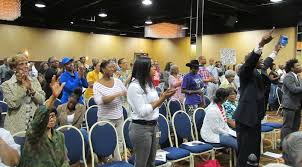 Robbie then says, “no, not at all, you know, the thing that angers me more, is that my family’s been blessed beyond measure, to have the support of people around us, and to have the resources to even take it as for as we did. But, how often does this happen, and the families are in low income areas and don’t have the resources?”
Robbie then says, “no, not at all, you know, the thing that angers me more, is that my family’s been blessed beyond measure, to have the support of people around us, and to have the resources to even take it as for as we did. But, how often does this happen, and the families are in low income areas and don’t have the resources?”
The interviewer then said, “To those people who might be following this story, you know they might be thinking, these are two people, who incidentally happen to be two people of color, having this discussion, and have some inbred biases perhaps, unknowingly, because of our background circumstances, or situation, it seems that, that is not totally true, because when the case finally went to the U.S. Supreme Court, all nine justices agreed that the lower court had blew off the claim that they needed to go back and take a fresh look at the issue, Quote, Unquote.”
The U.S. Supreme Court Victory
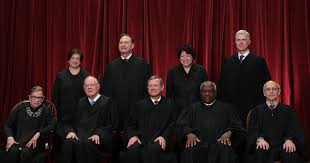 “So finally, if you have enough money, and enough resources, and enough tenacity to go far enough, eventually, at the Supreme Court, you get some recognition of the fact that this has been mishandled by more than people of our skin tone, who now validate a truth that you knew while you were still bleeding, with warm blood coming out of you on the cold ground in December. Is that right?”
“So finally, if you have enough money, and enough resources, and enough tenacity to go far enough, eventually, at the Supreme Court, you get some recognition of the fact that this has been mishandled by more than people of our skin tone, who now validate a truth that you knew while you were still bleeding, with warm blood coming out of you on the cold ground in December. Is that right?”
Robbie then replies, “Yeah, absolutely. You know, That was a huge, huge victory for us, and that was something that we had been praying for. We prayed for all nine justices to rule in our favor. That’s what we prayed for, so we were expecting it.”
The interviewer then said, “Give me a sense of when you got that verdict. All nine justices totally validating something that you knew, as a twenty one year old boy, with the feel of your blood running between your fingers. All of the sudden, after all of this money, all of this pain, all of these atrocities, you now get some level of validation.”
“What is the emotional feeling at that moment for you, and for your family, your mother?”
An Answered Prayer
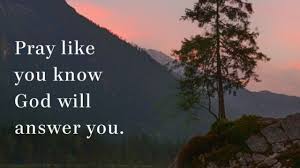 Robbie then answered, “You know, I would like to say that it was a complete and total shock, but you know, like I said, that’s what we were praying for. You know, we were specifically praying, that all nine justices ruled in our favor. That all nine justices would see that this was mishandled, severely.”
Robbie then answered, “You know, I would like to say that it was a complete and total shock, but you know, like I said, that’s what we were praying for. You know, we were specifically praying, that all nine justices ruled in our favor. That all nine justices would see that this was mishandled, severely.”
The interviewer then said, “So when you got what you prayed for, how did that feel?”
 Robbie then answered, “when we got what we prayed for, it renewed our fight. You know, we felt validated. You know, that finally, like finally someone saw this for what it is. A severe mishandling of justice.”
Robbie then answered, “when we got what we prayed for, it renewed our fight. You know, we felt validated. You know, that finally, like finally someone saw this for what it is. A severe mishandling of justice.”
The interviewer then said, “To your point, to families who do not have the resources, who are at the mercy of court appointed attorneys. They would have never had the finances, nor the fortitude to go to the extent that you did. When you see that, how does it make you feel?”
About Families Who Do Not Have The Resources
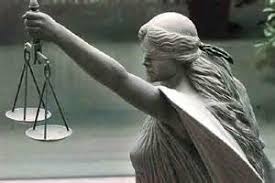 Robbie answered, “Well, it’s not something that I am happy about. That everyone doesn’t have the resources to do it, and that, more specifically, that, people that don’t have the resources are the ones that are most targeted.”
Robbie answered, “Well, it’s not something that I am happy about. That everyone doesn’t have the resources to do it, and that, more specifically, that, people that don’t have the resources are the ones that are most targeted.”
The interviewer then asked, “Should justice be expensive, should justice be brought about, you know so much that is done in our country is about money. If you have enough money you might have a better chance to win an election. If you have enough money, you might be able to get this done, that done, or get into this hospital, or that kind of hospital.”
“Should justice be something that is determined by finances, is lady justice as blind as we would like to think?”
 Robbie answered, “You know, it shouldn’t be, it shouldn’t be about money, you know, that’s not what’s written in the constitution. It’s not justice for all, if you make a certain amount.
Robbie answered, “You know, it shouldn’t be, it shouldn’t be about money, you know, that’s not what’s written in the constitution. It’s not justice for all, if you make a certain amount.
I think it takes rulings like mine, it takes people like Benjamin Crump, it takes people like yourself, it takes people like Michael Eric Dyson, it takes those kind of forward thinking people to speak out against it to change laws, and it takes 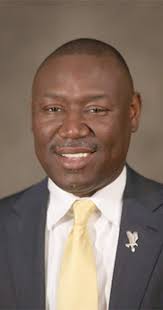 those people to encourage, and influence, and inspire the young people to come up, and grow up to be justices that hold up the law like it is supposed to be held, and hold those people accountable, that’s what it takes, it takes those types of people.
those people to encourage, and influence, and inspire the young people to come up, and grow up to be justices that hold up the law like it is supposed to be held, and hold those people accountable, that’s what it takes, it takes those types of people.
Justice shouldn’t be expensive, it should be just. It should be equal for all.”
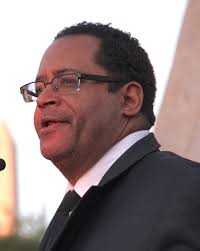 The interviewer then said, “So we’ve got nine Supreme Court Justices, who says something is wrong with how this case has been seen. The issue has been reviewed, it has been researched, and they come to an end that you had been praying for.”
The interviewer then said, “So we’ve got nine Supreme Court Justices, who says something is wrong with how this case has been seen. The issue has been reviewed, it has been researched, and they come to an end that you had been praying for.”
“Explain to me then, why, in light of all of that information that has been prayed for, and that you have judicially gone after and fought for.”
“Explain to me why, the police officer who shot the gun, is now promoted, and still working in the police department in Houston.”
The police officer who shot Me, Is Now Promoted
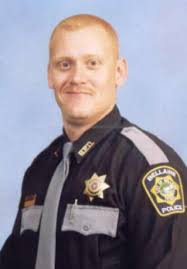 Robbie answered, “You know, I think it goes to accountability again. They have this Code of the Badge, police officers do that, a lot of them, let me not make a blanket statement, but a lot of them have this Blind Code of Honor that says, we are going to protect you now matter what.”
Robbie answered, “You know, I think it goes to accountability again. They have this Code of the Badge, police officers do that, a lot of them, let me not make a blanket statement, but a lot of them have this Blind Code of Honor that says, we are going to protect you now matter what.”
Even if, you know, we don’t like what’s happening. And so, I think at BelleAire, they live by that code. They spoke out all of the time, he didn’t do anything wrong. Despite mistakes, despite them making mistakes, they never even said, Oh well we made a mistake.”
“You know, so I think there is this, blind support for, with most officers, there is blind support for them that says they can do no wrong. And so, you have a year and a half paid vacation while you are on administrative leave, and you come get your job back, and you know, you’re quote, unquote, an outstanding officer, and you are promoted. You know, that is what it boils down to.”
Are We Dealing With an Epidemic in This Country?
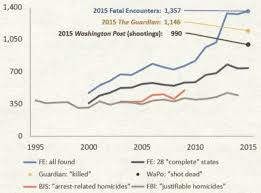 The interviewer then said, “To the ones following this story, according to an independent study by the Guardian, one thousand, one hundred, forty six people were killed by police in 2015, one thousand, one hundred, forty six people, three hundred and six of those were African Americans.”
The interviewer then said, “To the ones following this story, according to an independent study by the Guardian, one thousand, one hundred, forty six people were killed by police in 2015, one thousand, one hundred, forty six people, three hundred and six of those were African Americans.”
“So far, in 2016, eight hundred, twenty seven people had been killed by police. Two hundred and two of them are African-Americans.”
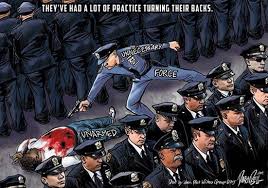 “Are we dealing with an epidemic in this country as it relates to these types of incidents that happen to normal American citizens? I am not saying in every case. Perhaps not in many cases, but in too many cases, do we have too many people, like you, who are weaponless, and end up bleeding, and on a stretcher?”
“Are we dealing with an epidemic in this country as it relates to these types of incidents that happen to normal American citizens? I am not saying in every case. Perhaps not in many cases, but in too many cases, do we have too many people, like you, who are weaponless, and end up bleeding, and on a stretcher?”
Robbie answered, “Yeah, you know, I think now is a great opportunity to change the hiring process for police officers, I think the vetting process needs to be different, I think there needs to be more sensitivity training, I think there needs to be more community relations training, that’s really how you police the community.”
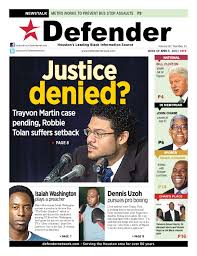 “You don’t do it by scaring people off, you don’t do it by threats. You do it by relations, relationships.”
“You don’t do it by scaring people off, you don’t do it by threats. You do it by relations, relationships.”
The interviewer then asked, “Doesn’t it seem strange that you would not have a whole in your chest, and a bullet that you are living with in your body, if there had been a five minute conversation that said, Let Me check Your Registration?”
Robbie answered, “ That’s all, That’s all it would have taken.”
The interviewer then said, “One sentence, would have stopped one bullet, that would have saved one family from having an atrocious life, and one officer even would have went home to his family in peace that night. For the lack of one sentence.”
Robbie then said, “That’s it, yep.”
How Do You Move Forward?
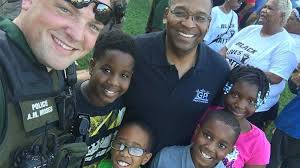 The interviewer then asked, “How do you move forward?
The interviewer then asked, “How do you move forward?
Let’s talk about that, with your life? How will you, or do you talk to your children, when you see, the challenges that are continuing to happen in this country as it relates to criminal justice, and all of its facets?
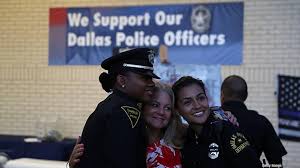 How do you protect those that you love now, what do you tell them about altercations with the police?”
How do you protect those that you love now, what do you tell them about altercations with the police?”
Robbie answered, “You know, that’s the most difficult question I have ever been asked.”
“I mean, that’s the question I have the most trouble with, because, on one hand you could, spout off a bunch of Cliches, and uh, you know, and kind of pacify the situation, but, I mean, in reality, in my opinion, you shouldn’t have to have a conversation about what to do, or what not to do when you see police officers.”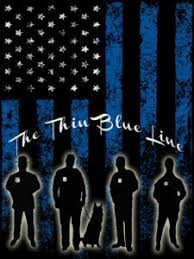
“You shouldn’t have to have that conversation, because you shouldn’t be fearful about someone who is suppose to protect you.”
“You know, it’s like, a mother or father, an aunt or uncle, you know you shouldn’t, you shouldn’t fear them. You know you shouldn’t fear the people who are suppose to protect you in my opinion.”
“And so, I, you know, I don’t know. I honestly don’t, I don’t know what I would tell my children, or even cousins, nieces, or nephews, I don’t know.”
“That’s the question I have the most trouble with. Uh, I don’t know.”
The Voice For The Voiceless
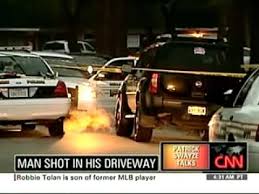 The interviewer then asked, “What do you tell yourself when you wake up in the middle of the night and you are back out there on the cold ground?
The interviewer then asked, “What do you tell yourself when you wake up in the middle of the night and you are back out there on the cold ground?
What do you tell yourself?”
Robbie answered, “That I am here for a reason. That GOD kept me here for a reason. You know, you think about this list of names, you see their faces, you hear their stories.”
 “I mean it was supposed to be me. Not supposed to be, it should have been me. I should have been on that list too, but I wasn’t, and I am here for a reason, and I know that.”
“I mean it was supposed to be me. Not supposed to be, it should have been me. I should have been on that list too, but I wasn’t, and I am here for a reason, and I know that.”
“I believe that the entire time, you know, even though, it hasn’t been easy, in fact it’s been a lot of dark days, more dark than bright days, but, that’s what I tell myself, that I am here for a reason, and, and you know I thought initially, that my purpose and destiny was to be this amazing baseball star, but now I see it is to be the voice for the voiceless.”
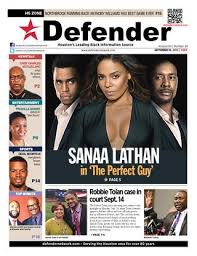 The interviewer then asked, “Okay when you look at this; To be a Voice For The Voiceless. I want to ask you this; If you were to see Lieutenant Cotton….”
The interviewer then asked, “Okay when you look at this; To be a Voice For The Voiceless. I want to ask you this; If you were to see Lieutenant Cotton….”
Robbie interrupted, “He is Lieutenant now, now Lieutenant, yeah, yeah.”
The interviewer then continued, “…..Yeah, promoted. What would you say to him?”
What Would You Say To The Man Who Shot You?
Robbie replied, “Ahh, aha ha, that’s another one though, because I have seen him quite a bit. You know, obviously more than I would like to. With court and depositions, I have seen him quite a bit over the last few years. You know, I don’t think I would have anything to say.”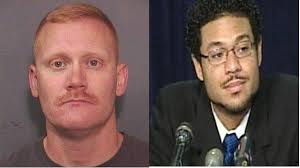
“There’s been a lot of anger, and a lot of resentment that I am still, dealing with. I can tell you something to make myself sound very stoic and all of this is beneath me, but I honestly don’t know.”
“I don’t know what I would say if anything, but what I do know is, that GOD has something for me, and I am very, very excited to see what that is.
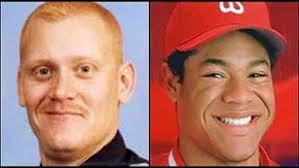 And so, I don’t think that I have to worry about that.”
And so, I don’t think that I have to worry about that.”
The interviewer then said, “I don’t have the information right here in front of me, but he looks like a fairly young man too, so you have two young men, similar age would you say?”
Robbie replied, “I think he was ahhh, maybe in his late thirties at the time.”
The interviewer then replied, “Okay, so he was in his late thirties, you were twenty three years old.”
Robbie replied, “Twenty three, yeah.”
He Shot Me, But I Don’t Think He is a Bad Guy
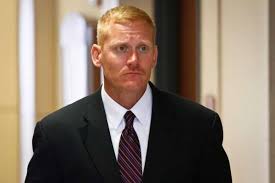 The interviewer then said, “So when you look at his promotion, and he might be a great officer. I am not going to trial him or anything like that. He might be a great officer.”
The interviewer then said, “So when you look at his promotion, and he might be a great officer. I am not going to trial him or anything like that. He might be a great officer.”
“I think that one of the mistakes that we make in this conversation is that we often talk about the majority of the police officers are good, and that there might be a few bad apples in the barrel or whatever the metaphor is we choose to use.”
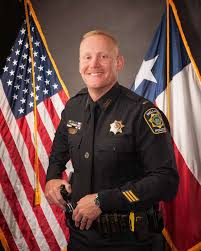 “But I would like to point out, or at least offer for consideration that you don’t have to be a bad person to make a bad choice.”
“But I would like to point out, or at least offer for consideration that you don’t have to be a bad person to make a bad choice.”
Robbie answered, “Right, right! And I have said before, I don’t think he’s a bad guy, to be honest with you, I think the guy, to be clear, Cotton was the second officer that shoved my mom, he wasn’t the first one that initially started this. I think he’s more nasty than Cotton is, with all the depositions, and testimonies for trial.”
“Cotton embellished quite a bit, I think that he did it I think because he was fearful, he was scared about what was going to happen to him. With regards to the first officer, officer Edwards, he wasn’t on the hook for anything, he wasn’t being tried, he wasn’t fired, he wasn’t on administrative leave, so he was untouchable and he let you know it. He had much more of a nasty disposition than Cotton.”
“But again, I don’t think Cotton’s a bad guy. I have looked him in his eyes several times, and I didn’t see evil, I didn’t see a bad guy. What I saw was a guy that freaked out and made a mistake. That’s okay, but the problem I have is when you don’t apologize, or when you don’t own up to your mistakes, and I don’t think he is a bad guy, you know, I don’t.”
Why Are Thousands Marching?
 The interviewer then said and asked, “We have seen thousands of people marching in Charlotte, then some in Baton Rouge, Tulsa, in Atlanta, in New York City.”
The interviewer then said and asked, “We have seen thousands of people marching in Charlotte, then some in Baton Rouge, Tulsa, in Atlanta, in New York City.”
“Do you think that the people are angry because of the split second choice that the officer made, or do you think the vast majority of people who are angry, are angry because there is no policing of the police officers that we can trust, that it is not tainted by who’s running for office during the year, who’s up to be the District Attorney, who’s in to be the Mayor, and what constituency you need to please to be, quote, unquote tough on crime, becomes code for being tough on African Americans?”
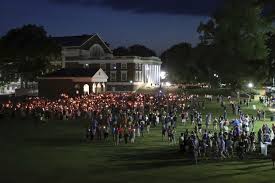 “What issue do you think drives people to leave the comfort of their homes and march up and down the streets in the middle of the night?”
“What issue do you think drives people to leave the comfort of their homes and march up and down the streets in the middle of the night?”
Robbie answered, “I think it’s all of it, I think ahmm, I think sometimes in some cases people might not know why they are doing it. They just do it just to be doing it, but I think it’s all of it, there is no policing of the police, there’s no accountability, there’s no transparency in a lot of cases.”
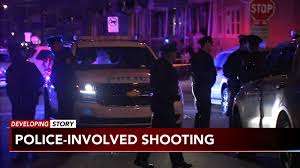 “I think the transparency that you have now is because, whenever there is an incident, because we have all of these high tech devices that people start pulling out cell phones. So you are almost forced to release footage, or release evidence, or things of that nature, or release the videos, you know, release the dashcams, but I think it’s all of it.”
“I think the transparency that you have now is because, whenever there is an incident, because we have all of these high tech devices that people start pulling out cell phones. So you are almost forced to release footage, or release evidence, or things of that nature, or release the videos, you know, release the dashcams, but I think it’s all of it.”
“When there is a shooting in a police department, who does the investigation? You know? That police department. They don’t have special prosecutors, they don’t have outside agencies in most cases doing these investigations.”
The Fine Blue Line
 The interviewer then said and asked, “There has to be a certain fraternity amongst police officers to cover each other’s backs as they go into the most horrendous situations in the world. To risk losing that support from your fellow police officers is almost like committing suicide.”
The interviewer then said and asked, “There has to be a certain fraternity amongst police officers to cover each other’s backs as they go into the most horrendous situations in the world. To risk losing that support from your fellow police officers is almost like committing suicide.”
“I have been told in private conversations with many police officers that even when they see wrong they are uncomfortable with saying that something is wrong because they fear that they will have the consequences of not having the support of their comrades when they walk into these horrendous situations.”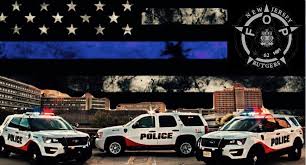
Robbie then said, “Yeah I completely understand, but then the question comes to mind, what do you stand for then?”
“What do you stand for, if not for justice, as a police officer?”
“You know, or anybody. If you see someone robbing a bank and you look away, you are just as guilty in my opinion.”
Finding Common Ground
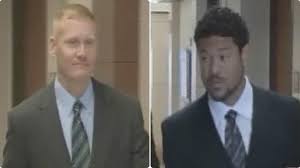 The interviewer then replied, “Absolutely; Let me ask you this; You said you looked into the eyes of the officer, you don’t think that he is a bad person, you think he made a bad choice, but he’s not a bad person.”
The interviewer then replied, “Absolutely; Let me ask you this; You said you looked into the eyes of the officer, you don’t think that he is a bad person, you think he made a bad choice, but he’s not a bad person.”
“Conversely, you don’t sound like a bad person. You don’t sound like a stereotypical idea that some people might have in a situation like this. Successful career, successful family, great neighborhood, articulate, intelligent, young black male.”
“Wouldn’t you think that a young black male, and a relative young white male would not allow the color of blue between them to stop them from finding common ground?”
“What is it going to take for us to sit down, and stop, this, killing?”
Robbie then said, “You know, that’s another question I get a lot; I think ahmm, I think it starts with a conversation.”
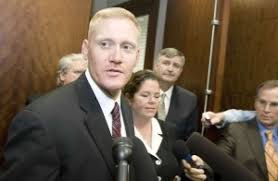 “You mentioned, a little bit ago, that all of this could have been prevented with one sentence.”
“You mentioned, a little bit ago, that all of this could have been prevented with one sentence.”
“I think it takes, for some of us to step back and step outside of ourselves, and have a conversation about what we are really fearful about and what our concerns are.”
“I think until we do that, and do it seriously, I think we are still going to continue to have these problems.”
“I think it takes those in positions of power to start holding people accountable.”
“If you march just to march, or you post a picture on Instagram with a hashtag, I mean, okay, that’s fine, but then what?”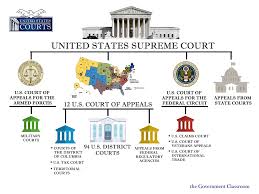
“What are you doing after that?”
“Are you writing your Mayor?”
“Are you writing your police department?”
“Are you writing your Congressman?”
“Are you actively trying to get laws changed?”
“Are you trying to hold people accountable, or are just posting just to post and be with the whole hashtag thing?”
 The interviewer then added, “Or are you voting? Ha ha, yeah?”
The interviewer then added, “Or are you voting? Ha ha, yeah?”
Robbie then said, “Are you voting? Yeah absolutely, absolutely Absolutely!
“And that’s another thing that my mother likes to hone in on, is jury duty. You know, we get a jury summons in the mail and we don’t want to take time off of work, or we don’t want to, uhh, find a babysitter, or we just don’t want to go, because it’s a waste of our time, or whatever, but, those people that are passionate, and those people that march, and post hashtags could have been on, in jury selection in my case. You know?”
Consistent Praying Power
 The interviewer then said, “Robbie, when we look at the story that you share with us, thank You for your transparency, and an opportunity to look into your heart and life.”
The interviewer then said, “Robbie, when we look at the story that you share with us, thank You for your transparency, and an opportunity to look into your heart and life.”
“One of the things that seems to be consistent in the process, from the praying mother who prayed while you were bleeding on the ground, to the statement that you said, we got what we prayed for, when nine Supreme Court Justices ruled, that there had been a misappropriation of justice, or that this case needed to be reevaluated again.”
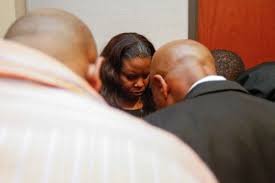 “Prayer has been the conduit through which you have survived all of the atrocities of life.”
“Prayer has been the conduit through which you have survived all of the atrocities of life.”
“I am wondering, as you say GOD has left you here for a purpose, many people following this story, may be people of faith.”
“We cannot stop the bullet and we cannot stop the injustices right now in the criminal justice system, though I think there is a way forward to fix those things.”
“What we can do is pray for you.
How can we pray for you?”
“What would be your request for people following this story to pray and support you as a person, as you live out this life that almost got snuffed out through a bad decision?”
Robbie then replied, “You know, I won’t be one to say, you don’t have to pray for me, but, I think the focus should be on these officers. I think the focus should be on these police chiefs, you know, pray for a clean heart, pray for discernment.”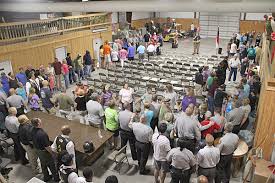
“Not saying, don’t pray for me, I’ll take all the prayer I can get. Trust me, I’m not one to shield off blessings, but I think you need to pray for, you know, like I said, these officers, these judges, these police chiefs, pray for discernment man, pray for a clean, pure, heart, you know.”
The interviewer then said, “Jesus would have said something like that, from the cross, when He was wrongfully convicted as well. I think He said; Father forgive them, for they know not what they do.”
“Thank You for sharing your story with us today, I really appreciate it. Both personally, and professionally.”
Robbie then replied, “Sir, it was my pleasure, thank you so much.”
The interviewer then replied, “Thank You.”
Robbie then replied, “My pleasure!”
The interviewer then closed, “GOD Bless You. Have a good day!”
Please Leave All Comments in the Comment Box Below ↓

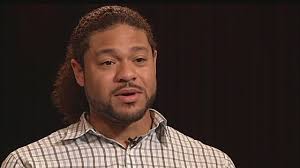












This is what happens when the wrong people have power, are in charge and there are no consequences. Unfortunately, once the damage is done there’s no going back and so many people go through situations similar to this.
How did this officer put in the wrong number?
This is definitely a cover up, it makes me mad and wonder whether the law is actually as fair as it should be (which is not).
God bless his soul!
This is why I believe it is important for ALL of us to talk to our children about placing themselves in positions where they can legally become proactive against the challenges that are continuing to happen in this country as it relates to criminal justice, and all of its facets.
Doing this, should help them learn how to protect those that they love, and what to do if they are ever involved in any unprovoked altercations with the authorities.
Thank you for utilizing a portion of your time for the reading and commenting on this article.
Many Blessings To You My Friend!
It never ceases to amaze me how easy it is to change the course of your life with the wrong split decision. It also takes a big person with huge compassion to find the good in someone that almost took their life with that split decision. I’m not sure I could have done it. But at the same time, I’ve never had to endure something of this caliber.
Thank you for taking the time to read and comment on this article.
Yep, one sentence, would have stopped one bullet, that would have saved one family from having an atrocious life, and one officer even would have went home to his family in peace that night.
I agree with you wholeheartedly, and thank you for your comment.
Best Of Blessings To You My Friend!
I would love to create a website like yours as the template used is really nice, simple and brings about clarity of the write ups, but then you wrote a brilliant article on the thoughts that many people express when they are hurt. there is so much to learn from this article and I must appreciate your effort to share this.
Thank you very much for reading and commenting.